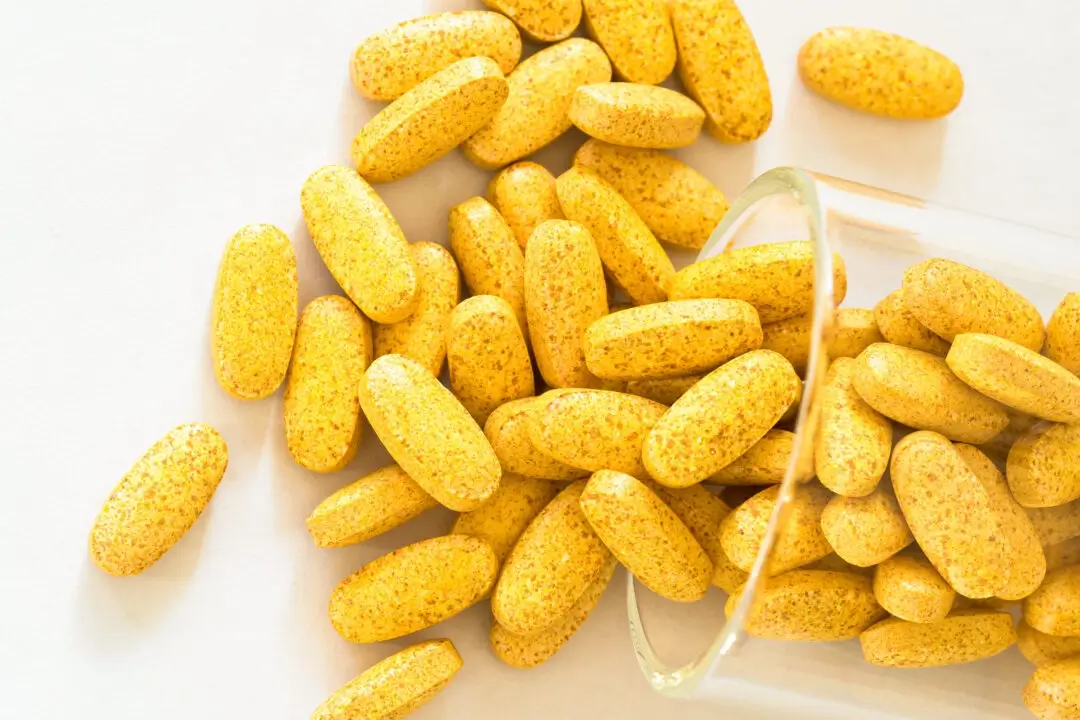
Staying Up Late: The Leading Cause of Stroke In Young Adults
Sudden headaches and dizziness may be early signs of stroke in young people.
By: Jingduan Yang | The Epoch Times
Recent data from the U.S. Centres for Disease Control and Prevention (CDC) shows a concerning trend: between 2011 and 2022, the prevalence of stroke among working-age adults increased by 15%, largely due to work-related stress and lifestyle habits.
During this period, the overall stroke prevalence in the U.S. rose by 7.8%. The increase was particularly pronounced among individuals aged 18 to 64:
- 14.6% rise in the 18 to 44 age group.
- 15.7% rise in the 45 to 64 age group.
I have witnessed people in their 30s suddenly suffer from stroke, resulting in significant challenges in daily life. Recognizing early signs and risk factors of stroke may help young people prevent this serious condition.
Types of Stroke
Fatty Acid C15:0 Discovered In Navy Dolphin Research Linked To Longevity
There are two types of strokes:
- Ischemic stroke: Occurs when a blood vessel becomes blocked (accounts for approximately 87% of all stroke cases).
- Hemorrhagic stroke: Happens when a blood vessel ruptures.
In traditional Chinese medicine (TCM), the symptoms of cerebral thrombosis or cerebral hemorrhage are collectively referred to as “stroke,” which is believed to be linked to the pathogenic factor known as “wind.” TCM views illness through the lens of energy, with “wind” representing a form of energy characterized by rapid movement and frequent changes—reflecting the sudden and diverse nature of stroke symptoms.
Stroke, a medical emergency that occurs when blood supply to the brain is interrupted, typically involves disruptions in the nervous and mental systems, manifesting as physical characteristics like facial paralysis, hemiplegia (paralysis of one side of the body), or seizures, often affecting motor and sensory functions.
The brain controls all aspects of the body, including thoughts, emotions, movement, language, cognition, and even the functioning of internal organs. When sudden symptoms arise, it is crucial to consider the possibility of a stroke.
Early Signs of Stroke
Nearly 30% of American adults under the age of 45 are unaware of the most common symptoms of stroke, according to the American Heart Association. While the overall incidence of stroke has declined in recent decades, stroke incidence and hospitalization rates among young adults have surged by 40%.
A stroke often presents with several early warning signs, including:
- Headache: Sudden and intense, unlike any experienced before.
- Vision problems: Sudden blurred vision, double vision, flashes of light, dark spots, or missing areas in your field of vision.
- Facial paralysis: Numbness or weakness in the face, typically affecting one side (which may be caused by peripheral nerve issues or damage to the brain’s central nervous system.)
- Numbness and weakness in the limbs: Similar to facial paralysis but affecting the limbs (Symptoms vary depending on the affected brain area. Damage to cranial nerve regions causes head symptoms, while damage to motor areas leads to limb problems.)
- Speech difficulties: Sudden inability to speak, trouble finding words, or difficulty understanding speech.
- Dizziness or loss of balance: Feeling lightheaded, unsteady, or experiencing a spinning sensation (If the ground feels uneven or your steps seem off-balance, it could be an early sign of stroke.)
Factors Contributing To Stroke In Young People
The increased risk of stroke among young adults is largely attributed to:
- Work-related stress.
- Unhealthy lifestyle habits (smoking, drinking, poor diet).
- Lack of sleep.
Staying up late is particularly detrimental, as it can:
- Raise blood pressure.
- Weaken the immune system.
- Contribute to chronic inflammation.
Chronic inflammation can damage the inner lining of blood vessels, leading to the build-up of clotting factors, fibrin, cholesterol, and cells on the vessel walls, which can eventually cause blockages.
A 2021 review showed that the inflammatory state caused by sleep deprivation increases the risk of cardiovascular disease—starting with atherosclerotic lesions (fatty deposits that build up in the arteries) and progressing to thrombosis, which is the primary underlying cause of heart attacks and strokes. While the exact mechanisms through which sleep deprivation harms cardiovascular health are not yet fully understood, research has established links between insufficient sleep and conditions such as Type 2 diabetes, hypertension, abnormal lipid levels, endothelial dysfunction, and coronary calcification.
Researchers from Yale University found that sleeping less than seven hours or more than nine hours per day was associated with poorer brain health in middle-aged adults, according to a 2023 study published in the Journal of the American Heart Association. Those who slept too little were more likely to have white matter lesions in the brain, which are linked to brain aging and small vessel disease, thereby increasing the risk of stroke or dementia.
Sleep deprivation has been linked to increased blood clotting activity. Under normal circumstances, clotting factors are activated when the body is injured and bleeding to prevent blood loss. However, with insufficient sleep, blood tends to clot more easily, increasing the risk of thrombosis.
In short, staying up late is truly detrimental to our health.
Balancing Work & Health
Balancing work and health is essential. For young people whose jobs require staying up late, it is important to remember that your work efficiency and results are directly tied to the tools you rely on. In this case, the “tools” are not computers or software, but rather your body and mind—especially your brain, which requires the most care.
Self-care should always be a top priority.
This includes:
- Avoiding excessive caffeine, processed food, sugar, and smoking.
- Limiting alcohol consumption.
- Adopting healthy stress-coping strategies.
Unwinding by drinking alcohol with friends after work only further harms your body, particularly after staying up late. This habit can lead to obesity, high blood pressure, high cholesterol, and high blood sugar, ultimately increasing the risk of stroke at a young age.
High blood pressure and obesity are increasingly prevalent among young people. In the U.S., 50.4% of men and 43% of women over the age of 20 have hypertension, and more than 71% of American adults are either overweight or obese, according to the latest statistics from the American Heart Association and the National Institutes of Health (NIH).
When dealing with stress, it is advisable to adopt healthy coping strategies, such as maintaining a balanced diet, getting sufficient sleep, increasing nutrient intake, and finding time to exercise. Practices like meditation can also help relax the mind and manage emotions.
Healthy Habits To Prevent Stroke
A healthy lifestyle not only helps prevent strokes but also prolongs life expectancy.
A 30-year Harvard study of more than 120,000 Americans found that the more healthy habits people adopt, the longer they tend to live. Among 50-year-olds, women who adopt five key healthy habits can expect to live 14 years longer, and men 12 years longer, compared to those who do not adopt these habits. The risk of dying from cardiovascular disease was reduced by 82%.
These five habits include:
- Not smoking.
- Maintaining a healthy weight, with a body mass index (BMI) between 18.5 and 24.9.
- Exercising regularly, with at least 30 minutes of moderate to vigorous physical activity daily.
- Limiting alcohol intake to moderate levels.
- Eating a healthy diet rich in vegetables, fruits, nuts, whole grains, and unsaturated fats, while limiting red meat, processed meats, sugary drinks, trans fats, and sodium.
Moderate alcohol levels mean, for women, 0.18 to 0.53 fluid ounces (5 to 15 grams) of alcohol per day, and for men, 0.18 to 1.06 fluid ounces (5 to 30 grams) per day. A standard drink typically contains about 0.49 fluid ounces (14 grams) of pure alcohol, which is equivalent to 12 ounces of regular beer, 5 ounces of wine, or 1.5 ounces of distilled spirits, according to the National Institute on Alcohol Abuse and Alcoholism.
By adopting these habits, people can not only prevent strokes but also may potentially extend their life expectancy by 12-14 years.
* * *
NEXT UP!
Customized B Vitamin Therapy Could Help Parkinson’s Patients, New Study Suggests
A team of Japanese scientists has uncovered an unexpected link between the gut and the brain. The discovery may offer fresh insights into managing a condition that affects 9 million people worldwide.
Deficiency of 2 B Vitamins Linked to Parkinson’s
The study, published in NPJ Parkinson’s Disease, suggests that vitamin B deficiency may contribute to Parkinson’s development by compromising the intestinal barrier, which typically prevents toxins from entering the bloodstream. Toxins in the bloodstream may lead to neuroinflammation, which is inflammation in the nervous system often associated with neuro-degenerative diseases and other neurological conditions.
* * *
READ MORE: B Vitamins: Your Brain’s Natural Repair Kit
Awareness! How Sugar Changes Your Brain
Telegram: Stay connected and get the latest updates by following us on Telegram!
We’d love to hear from you! If you have a comment about this article or if you have a tip for a future Collective Spark Story please let us know below in the comment section.


Given the rising incidence of stroke among young adults, what changes can you make to reduce your risk of stroke and prioritize your health, especially when balancing work and lifestyle pressures?